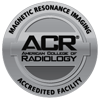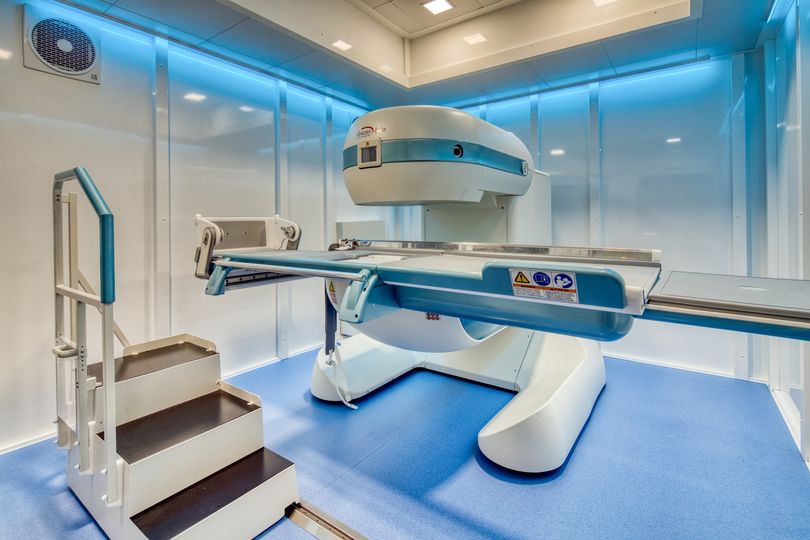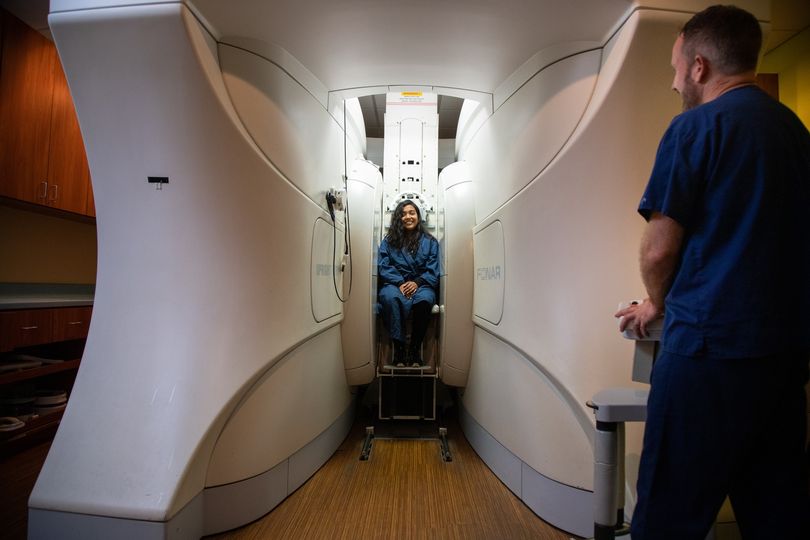Digital Mammogram (Breast Imaging)
Clermont Radiology is a Mammography Accredited Facility by the American College of Radiology (ACR).

What is Mammogram?
Mammography is the practice of radiographic imaging of the soft tissue of the breast. Digital Mammography is the highest image resolution available. Multiple images are obtained by gentle positioning of the breast by the technologist to produce high contrast images. A mammogram is a low dose x-ray of the breast. It is performed to detect abnormal growths or changes in the breast, or to provide a baseline reference for later comparison. It is an important way to help protect you against breast cancer as it can find cancers too small to be felt by hand.
How Does It Work?
During the procedure, the breast is positioned on a radiographic breast support and compression is applied with a plastic paddle while x-rays are being taken. There may be discomfort during the three to five second period of compression; however, compression is necessary to obtain the clearest possible picture with the least amount of radiation. Usually two views per breast are required for a complete screening.
When do I need Mammogram?
The recommendation is that women get a mammogram once a year, beginning at age 40. If you're at high risk for breast cancer, with a strong family history of breast or ovarian cancer, or have had radiation treatment to the chest in the past, it's recommended that you start having annual mammograms at a younger age.
How should I prepare?
Prior images are extremely important for comparison and establishing stability of the breast tissue. Try to schedule your mammogram the week after your menstrual cycle. Eliminate caffeine and chocolate from your diet 2 weeks prior to your appointment. Also be sure not to wear powder, deodorant or perfume.
Download Digital Mammogram Exam Prep
What should I expect?
You may be asked to change into a hospital gown from the waist up. You may also be asked to wash deodorant off to eliminate artifacts from the images.
How do I get my results?
After your study is complete, our board certified radiologist will evaluate the image results and send a full report to your doctor, who will discuss the results with you.
What's the difference between a Screening & a Diagnostic Mammogram?
Screening mammography is an x-ray examination of the breasts in a woman who is asymptomatic (has no complaints or symptoms of breast cancer). The goal of screening mammography is to detect cancer when it is still too small to be felt by a woman or her physician.
Early detection of small breast cancers by screening mammography greatly improves a woman's chances for successful treatment. Screening mammography is recommended every one year for women once they reach 40 years of age. In some instances, physicians may recommend beginning screening mammography before age 40 (i.e. if the woman has a strong family history of breast cancer).
Diagnostic mammography is an x-ray examination of the breast in a woman who either has a breast complaint has had an abnormality found during screening mammography. Diagnostic mammography is more involved and time-consuming than screening mammography and is used to determine exact size and location of breast abnormalities and to image the surrounding tissue and lymph nodes. Typically, several additional views of the breast are imaged and interpreted during diagnostic mammography. Women with breast implants or a personal history of breast cancer will usually require the additional views used in diagnostic mammography.
Clermont News
Our Esaote G-Scan Brio MRI located in our Ocala office!
Oakley Seaver Open MRI
The 3 “Must Haves” in Women’s Imaging
Make an Appointment
Filling out the form does not guarantee an appointment until confirmed via phone or email by a patient care representative.
In a continued effort to improve patient care, we will now require all orders on file prior to scheduling for the following exams:
- MRI
- CT
- PET
- Nuclear Medicine
Clinical notes are needed prior to requesting authorization. Any delay in receiving the necessary notes may result in the rescheduling of appointments.






